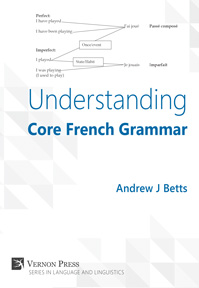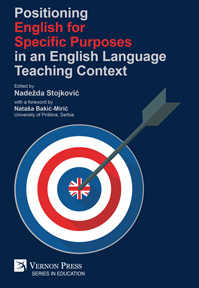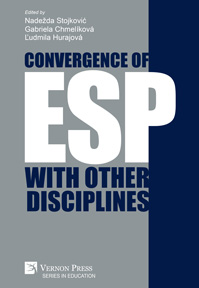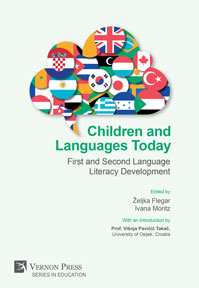Contact, Community, and Connections: Current Approaches to Spanish in Multilingual Populations
Gregory L. Thompson, Scott M. Alvord (Eds.)
by John Chaston (University of New Hampshire), Wilfredo Valentín-Márquez (Millersville University), Carolina Viera (Boise State University), Isabel M. Kentengian (The College of New Jersey), Meghann M. Peace (St. Mary’s University), Justin Davidson (University of California, Berkeley), Sonya Trawick (Penn State University), Jim Michnowicz (North Carolina State University), Patricia Arnold (University of Texas at Arlington), María Teresa Martínez-García (Hankuk University of Foreign Studies), José Rojas (Louisiana State University), Yuly Y. Asención Delaney (Northern Arizona University), Dorian Dorado (Louisiana State University), Giselle Gimenez Meiling (Brigham Young University), Willis C. Fails (Brigham Young University), Scott M. Alvord (Brigham Young University), Gabriela Moreno (New Mexico State University), Patricia MacGregor-Mendoza (New Mexico State University), Clara Burgo (Loyola University Chicago), Ángela Pinilla-Herrera (Georgia Southern University), Lauren Truman (University of Minnesota)
Purchase this book
(click here to change currency)
"Contact, community, and connections: Current approaches to Spanish in multilingual populations" adds to the invaluable research tradition that started in 1980 with the very first Conference on Spanish in the United States. The end result of Thompson and Alvord’s meticulous editorship is a timely volume that not only exemplifies current trends in the study of Spanish-speaking communities in the United States and Spanish in contact with other languages, but also foretells many of the questions that will maintain researchers occupied for years to come. The variety of topics, methodological perspectives, and data analysis approaches makes this edited volume a must-read for scholars and future scholars interested in Spanish linguistics in general, and in the relationship between language and identity, the effects of language and dialect contact, and the teaching of Spanish as a foreign and heritage language in particular.
Prof. Dr. Edwin M. Lamboy
School of Education, The City College of New York (CUNY)
This edited volume provides state of the art research on developing areas of Spanish in contact with other languages. This manuscript is unique in its broad yet coherent approach to the study of Spanish in bilingual contexts by investigating current issues in the field through well-designed research and innovative analyses. In addition, this book concludes with research on how languages in contact are reflected in individuals in educational settings as well as insights on how to teach bilinguals raised in contact with English and Spanish.
This manuscript is divided into three major themes that focus on the overall issues of Spanish in bilingual contexts:
1. The first section, titled "Language and Identity," is composed of four chapters that focus on the connection between language and identity in unique settings.
2. The second section of the manuscript is titled "Language and Dialectal Contact" and is composed of six chapters that analyze the dialectal and linguistic changes in languages in contact in a variety of settings.
3. The final section is titled "Language in Educational Settings" and consists of four chapters with a focus on heritage speakers and second language students of Spanish in different classroom settings as well as abroad.
This volume contributes original research in these areas in a way so as to fill valuable gaps in the current knowledge in the field especially in the innovative ways of approaching areas such as teaching heritage learners, understanding diachronic and synchronic dialectal and linguistic changes as well as innovations in language use, and how language contributes to the formation of identity.
List of Tables
List of Figures
Acronymns
Acknowledgements
Introduction
Part 1 Language and Identity
Chapter 1
Variedades caribeñas en contacto: Actitudes dialectales de dominicanos y puertorriqueños en Lancaster, Pennsylvania
Wilfredo Valentín-Márquez, Millersville University
Chapter 2
Language Attitudes of Bilingual Maya Women Living in Yucatan
Lauren Truman, University of Minnesota
Chapter 3
La informalidad como recurso en el español académico de las conferencias
Carolina Viera, Boise State University
Chapter 4
“Mi idioma”: Heritage speakers’ language varieties and identity positioning during study abroad
Isabel Kentengian, The College of New Jersey
Meghann Peace, St. Mary’s University
Part 2 Language and Dialectal Contact
Chapter 5
Intervocalic /s/ Voicing in Andean Spanish: Problematizing the Assessment of Contact-Induced Change
Justin Davidson, University of California, Berkeley
Chapter 6
Glottal Insertion before Vowel-Initial Words in the Spanish of Asunción, Paraguay
Sonya Trawick, Penn State University
Jim Michnowicz, North Carolina State University
Chapter 7
Traditional New Mexican Spanish: The Past, Present, and Future 173
Patricia Arnold, University of Texas at Arlington
María Teresa Martinez-Garcia, Hankuk University of Foreign Studies
Chapter 8
Mood Alternation in Negated Assertives: Insights into Spanish Usage in the United States and Beyond
John Chaston, University of New Hampshire
Chapter 9
Tenía yo como un año y no me recogió: Variación del pretérito e imperfecto en la comunidad mexicana al sur de Luisiana
Dorian Dorado, Louisiana State University
José Rojas, Louisiana State University
Chapter 10
Lengthening and F0 early peak alignment in Argentine Spanish of Queens, NYC
Giselle Gimenez Meiling, Brigham Young University
Willis C. Fails, Brigham Young University
Scott M. Alvord, Brigham Young University
Part 3 Language in Educational Settings
Chapter 11
Language, Culture, and Service: Innovative Strategies for Bridging SHL Classrooms and Communities Through Service-Learning
Gabriela Moreno, New Mexico State University
Patricia MacGregor-Mendoza, New Mexico State University
Chapter 12
Mixed Classrooms: How Do Spanish Heritage Speakers Feel About the Mix?
Clara Burgo, Loyola University Chicago
Chapter 13
¿Jugo de durazno o zumo de melocotón?: Mexican-American Heritage Speakers’ Service Encounters in Spain
Meghann Peace, St. Mary’s University
Chapter 14
Mantenimiento del español en dos adultos jóvenes: una aproximación al impacto de las redes sociales
Ángela Pinilla-Herrera, Georgia Southern University
Chapter 15
Anotaciones para hablantes de herencia en libros de texto de español a nivel introductorio
Yuly Y. Asención Delaney, Northern Arizona University
Index
Gregory L. Thompson (Ph.D., Second Language Acquisition and Teaching, University of Arizona) is an Associate Professor of Spanish Pedagogy at Brigham Young University. He has taught classes on language pedagogy, bilingualism, Spanish phonetics, applied linguistics, as well as on the development of language skills. Thompson has published articles in Foreign Language Annals, Hispania, and other journals on his varied research areas including code-switching in the foreign language classroom; heritage language learners; service learning and language acquisition; bilingualism and languages in contact; and placement exams and language testing. He has presented extensively at regional, national, and international conferences. He also has published three books titled Intersection of Service and Learning: Research and Practice in the Second Language Classroom; Spanish in Bilingual and Multilingual Settings around the World; and The Changing Landscape of Spanish Language Curricula: Designing Higher Education Programs for Diverse Students.
Scott M. Alvord (Ph.D. in Hispanic Linguistics, University of Minnesota) is an Associate Professor of Hispanic Linguistics at Brigham Young University. He has taught undergraduate and graduate courses on Hispanic Linguistics, Spanish Phonetics, Spanish Phonology, Comparative Linguistics, Spanish Grammar, and Second Language Acquisition of Phonology. His research interests include phonetics and phonology, Spanish in the U.S., and the second language acquisition of Spanish phonology. He has presented extensively at regional, national, and international conferences. Recent publications can be found in Spanish in Context, Foreign Language Annals, Hispania, and Sociolinguistic Studies.
For entire book:
Spanish in Contact
Spanish Heritage Language Learners
Language Identity
Language Attitudes
Dialectal Contact
For specific chapters:
Chapter 1: language attitudes, Dominican Spanish, Puerto Rican Spanish,
Chapter 2: language attitudes, language maintenance, Yucatecan Spanish, Maya-Spanish bilingualism
Chapter 3: discourse strategies, discourse formality, academic discourse, gender and register theory
Chapter 4: language identity, study abroad, Spanish heritage language learners
Chapter 5: sociophonetics, Andean Spanish, contact-induced change
Chapter 6: sociophonetics, Paraguayan Spanish, Guarani-Spanish bilingualism
Chapter 7: New Mexican Spanish, Spanish-English bilingualism, language documentation
Chapter 8: mood variation, Spanish in the United States
Chapter 9: aspect variation, Spanish in the United States, Spanish in Louisiana, Mexica Spanish
Chapter 10: Argentine Spanish, Spanish in Queens, intonation in contact, Spanish intonation
Chapter 11: Spanish heritage language learners, service learning, educational strategies
Chapter 12: Spanish heritage language learners, language attitudes
Chapter 13: Spanish heritage language learners, mixed classrooms, language attitudes, educational strategies
Chapter 14: Spanish heritage language learners, social networks, language maintenance
Chapter 15: Spanish heritage language learners, educational strategies, instructional materials
See also
Bibliographic Information
Book Title
Contact, Community, and Connections: Current Approaches to Spanish in Multilingual Populations
ISBN
978-1-62273-839-7
Edition
1st
Number of pages
434
Physical size
236mm x 160mm

![Contact, Community, and Connections: Current Approaches to Spanish in Multilingual Populations [Paperback]](/file/9942/25004f20787892a3ad00846f3d31da06/1566902546.jpg)






